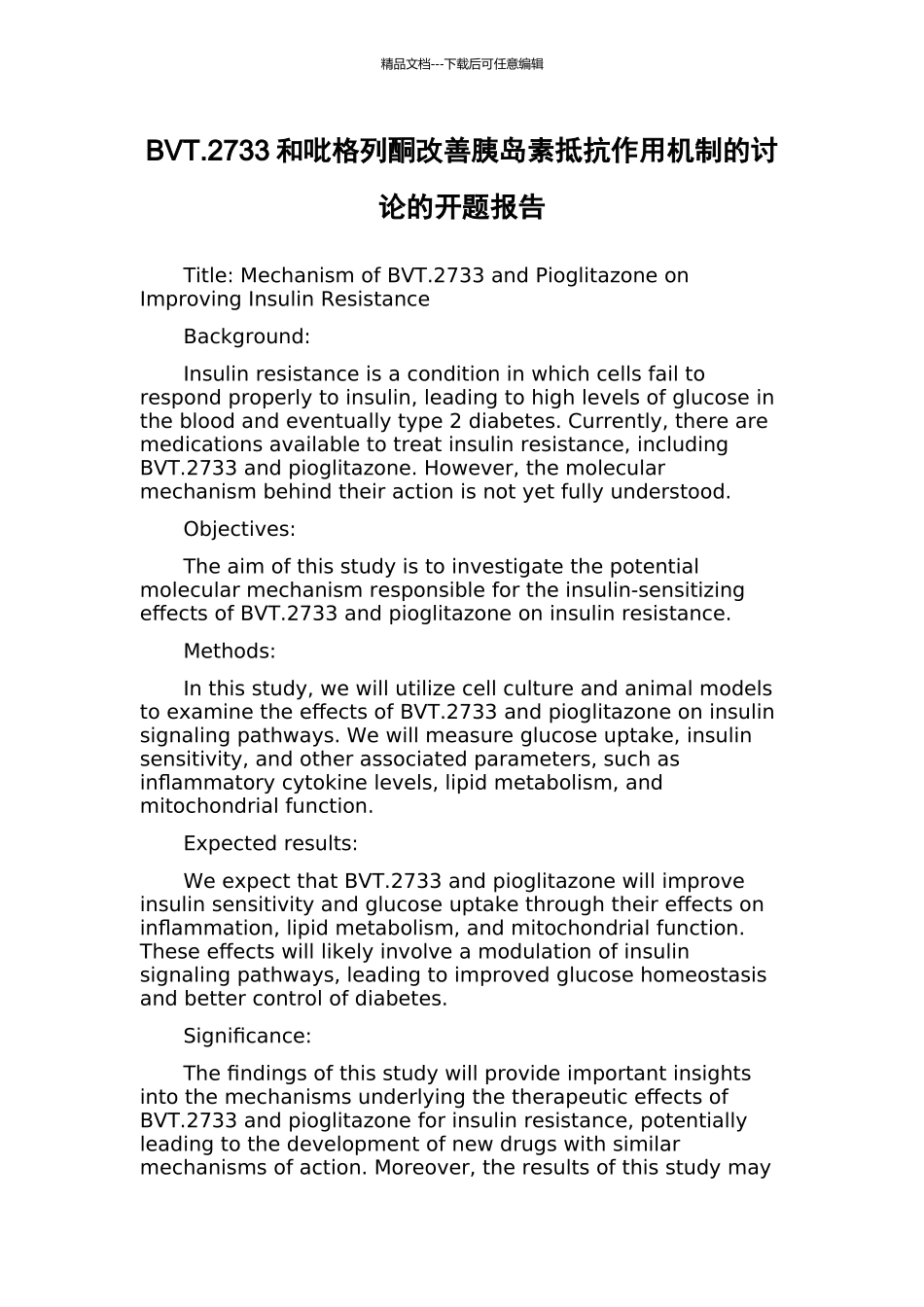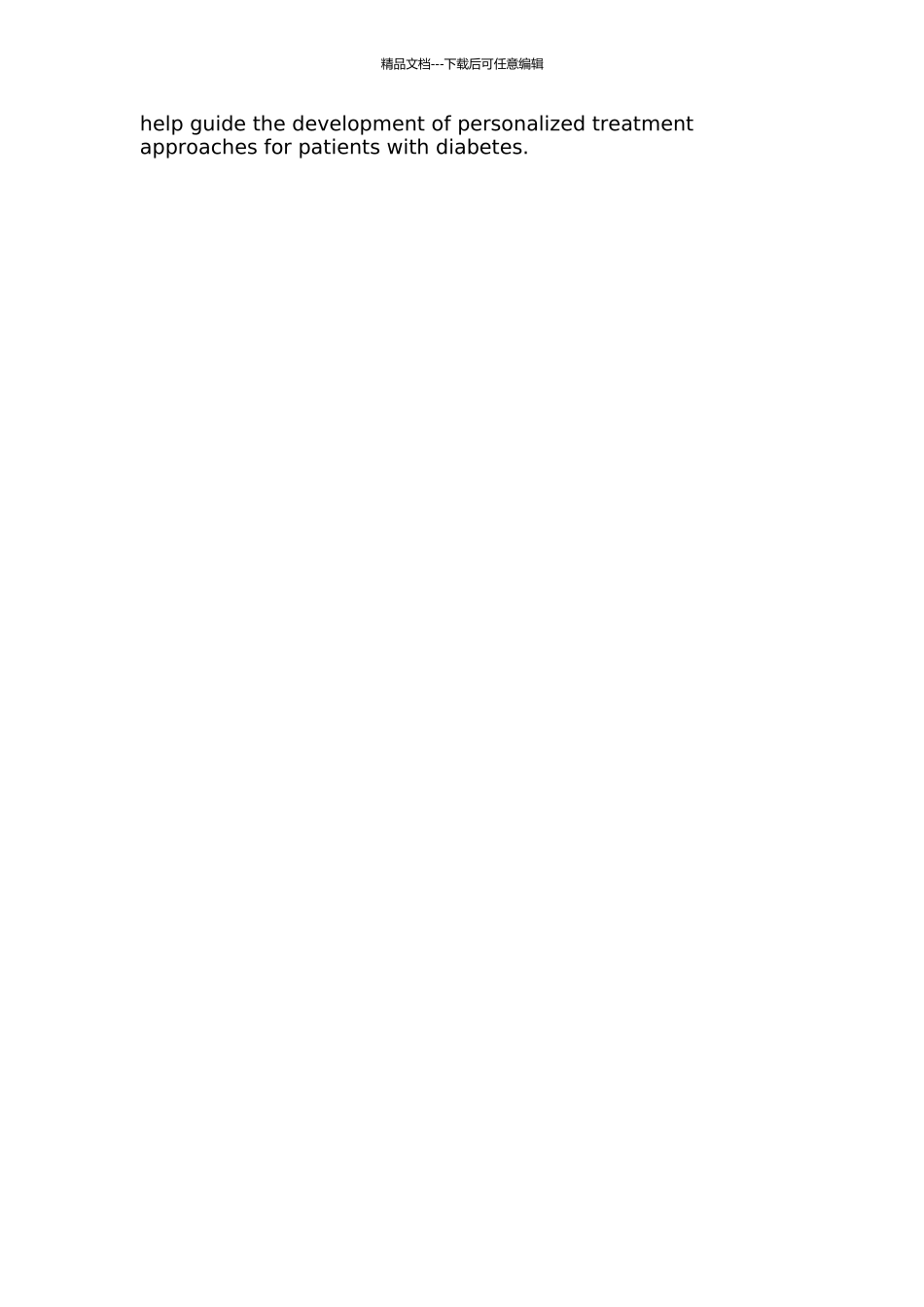精品文档---下载后可任意编辑BVT.2733 和吡格列酮改善胰岛素抵抗作用机制的讨论的开题报告Title: Mechanism of BVT.2733 and Pioglitazone on Improving Insulin ResistanceBackground:Insulin resistance is a condition in which cells fail to respond properly to insulin, leading to high levels of glucose in the blood and eventually type 2 diabetes. Currently, there are medications available to treat insulin resistance, including BVT.2733 and pioglitazone. However, the molecular mechanism behind their action is not yet fully understood.Objectives:The aim of this study is to investigate the potential molecular mechanism responsible for the insulin-sensitizing effects of BVT.2733 and pioglitazone on insulin resistance.Methods:In this study, we will utilize cell culture and animal models to examine the effects of BVT.2733 and pioglitazone on insulin signaling pathways. We will measure glucose uptake, insulin sensitivity, and other associated parameters, such as inflammatory cytokine levels, lipid metabolism, and mitochondrial function.Expected results:We expect that BVT.2733 and pioglitazone will improve insulin sensitivity and glucose uptake through their effects on inflammation, lipid metabolism, and mitochondrial function. These effects will likely involve a modulation of insulin signaling pathways, leading to improved glucose homeostasis and better control of diabetes.Significance:The findings of this study will provide important insights into the mechanisms underlying the therapeutic effects of BVT.2733 and pioglitazone for insulin resistance, potentially leading to the development of new drugs with similar mechanisms of action. Moreover, the results of this study may 精品文档---下载后可任意编辑help guide the development of personalized treatment approaches for patients with diabetes.

